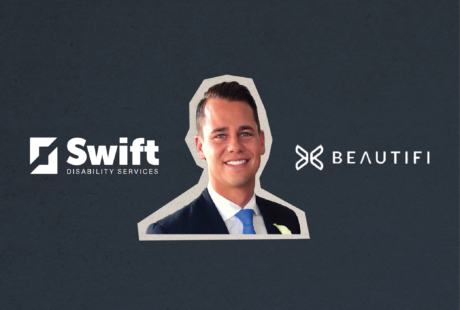Related:
Diversity in Engineering is Better for Everyone
“It’s sometimes challenging for us to recruit, because we need individuals that have a specific expertise,” says Jan Khoo, Accounting & HR Director at Eriez Flotation. The BC based company has supplied more than 900 flotation columns throughout the world, helping clients concentrate and purify minerals including iron ore, base-metals, gold, and more. “It’s been a challenging labour market, as talent seem to have become more hesitant to move around, likely the result of recessionary discussions that are happening,” she says.
As Khoo tells Goldbeck Recruiting, her challenge is to staff the company with top talent, amid evolving workplace expectations and an increasingly technical workplace environment.
Recruiting in a Niche Environment
“Our product is niche,” concedes Khoo, “and our sales team are from a technical background.” While it’s not necessary that all employees have direct experience, Khoo says that it certainly doesn’t hurt. “It’s always nice to have individuals that actually have flotation expertise, which lessens onboarding and training time.”
Khoo believes that immigration is an important source of talent for Canadian companies. “Our organization has always been very open to onboarding people that don’t have Canadian experience,” she says. “Our clients are all over the globe.”
Office Technology Increasingly Demanding
It’s not just flotation technology that requires technical expertise, but business functions as well. “Things are getting more technologically sophisticated in sales administration, HR, and finance,” says Khoo. “10 years ago, your job may have required basic Excel skills. Now I need you to do a vlookup and I need you to understand what that actually means.” (It stands for vertical lookup, a particular search function in Excel, in case you were wondering).
“There needs to be an awareness of how ERPs and CRMs work,” she continues. “Even usernames, passwords, and portals must be understood.”
Khoo believes that the pandemic has hastened the need for technical expertise across all business functions.
“Hybrid work models have caused these requirements to increase,” she says.
Hybrid Work Arrangement Favoured
Speaking of work arrangements, it’s no secret that they have now become a factor in recruiting and retention.
“Some candidates don’t want to work with an employer that’s hybrid,” says Khoo. “They want to work fully remotely. Perhaps 25% of candidates are unwilling to accommodate a hybrid schedule, while others will want benefits in order to accommodate it.”
Eriez Flotation requires staff to spend two days per week in the office. Unlike some companies, all staff come in on the same two days.
“The reason for that is to encourage collaboration within the teams,” explains Khoo. “Emails are not meant for decision making, they’re meant for information exchange. You can eliminate multiple emails just by going to a person’s desk.”
Women in STEM
When Khoo looks around the office, she’d like to see more female talent performing engineering roles.
“Whether I recruit myself, or use a recruiting firm such as Goldbeck, I’m not seeing as diverse a set of applicants on the technical side as I would for my own team, where it’s finance, HR, and administrative work,” she explains. “This goes not only for engineers, but for designers and people who work with 3D modelling, and other things of that nature.”
Khoo sees this not as a recruiting shortcoming, but a problem whose origins begin much earlier. “I just don’t think we have enough out there,” she says. “I don’t know if women are not getting into the field because they perceive a lack of opportunity to move up the ladder, or if we’re not fostering it from an education level.”
Despite this, Khoo does see things moving in the right direction.
“I do think that women have a better future in the field today than if they started their careers 25 years ago,” she says. “There’s more conversation and more awareness.”
Branding Challenges in Technical Industry
Part of the challenge in a technical industry is communicating clearly with a diverse set of audiences.
“Engineers are a big part of our business, but we also need to recruit for administrative roles, finance roles and so on,” says Khoo. “You’d have to be very familiar with the technology in order to know who we are.”
As Khoo explains, the communication challenge doesn’t stop there.
“There are also suppliers , who need to understand what you’re talkingabout, as well as potential talent who may require a high level of detail to understand the job requirements.”
Regardless of the challenges at hand, Khoo, as well as Eriez, are up to the task. The company is growing, and Khoo offers one more reason to look forward to seeing new faces in the office.
“Everybody actually likes talking to each other and being in each other’s company,” she reports.
Source
Personal communication with Jan Khoo




